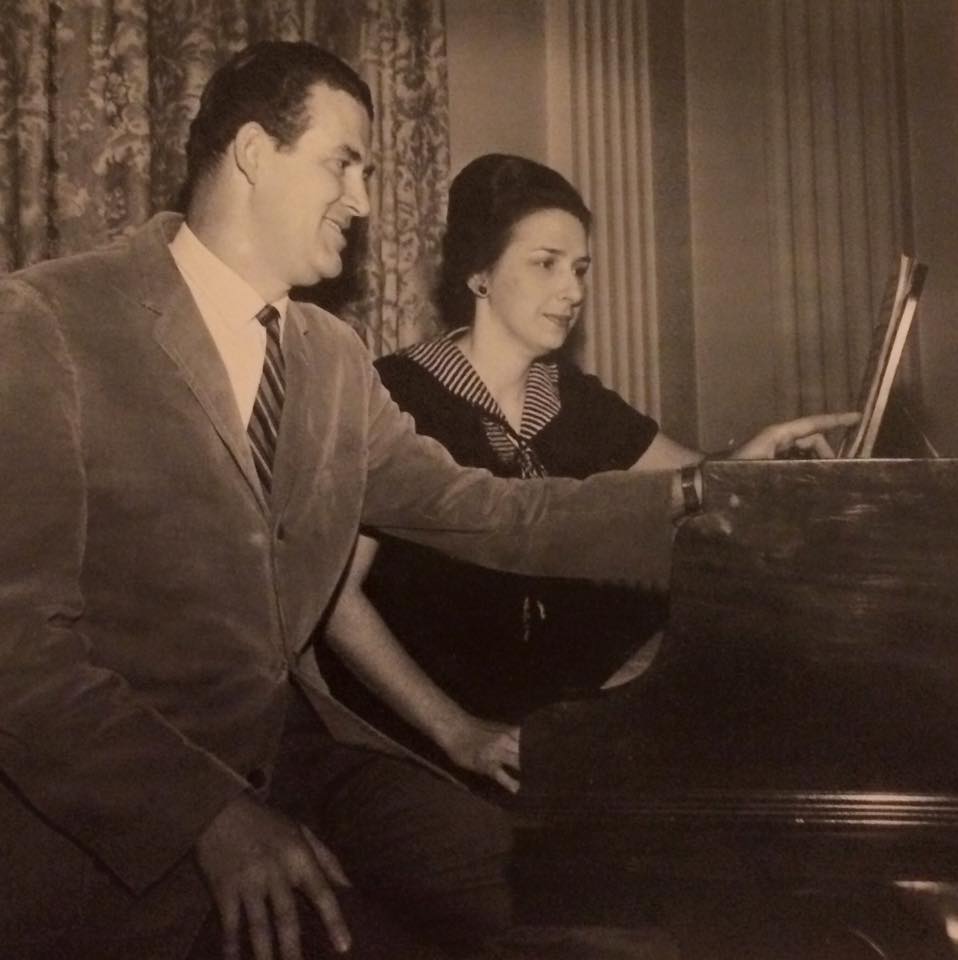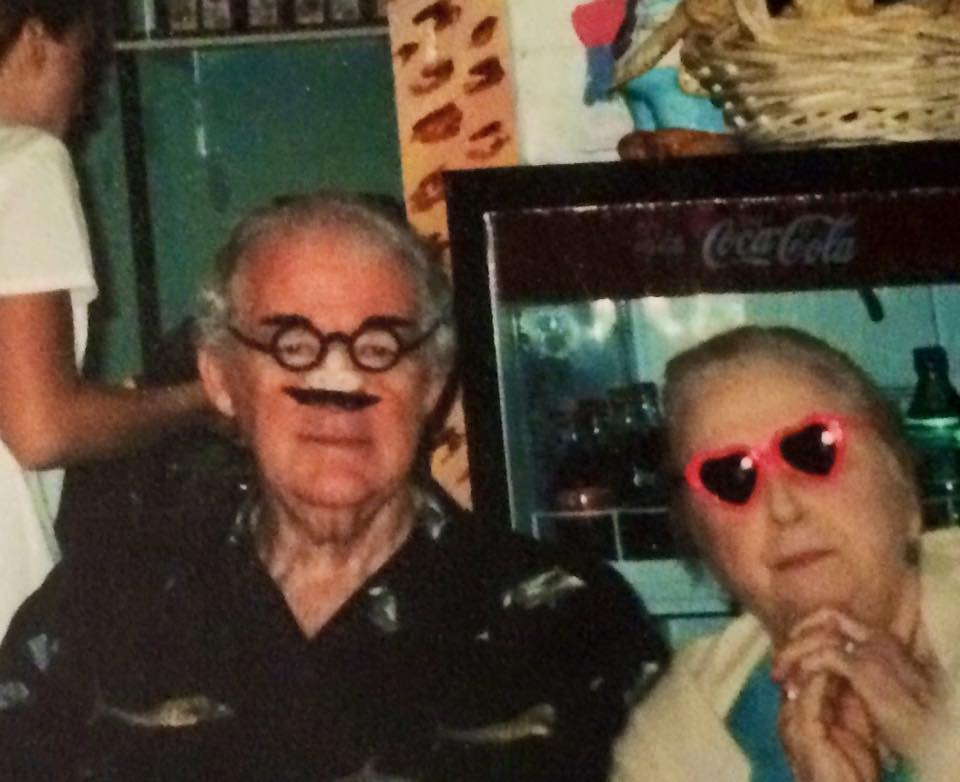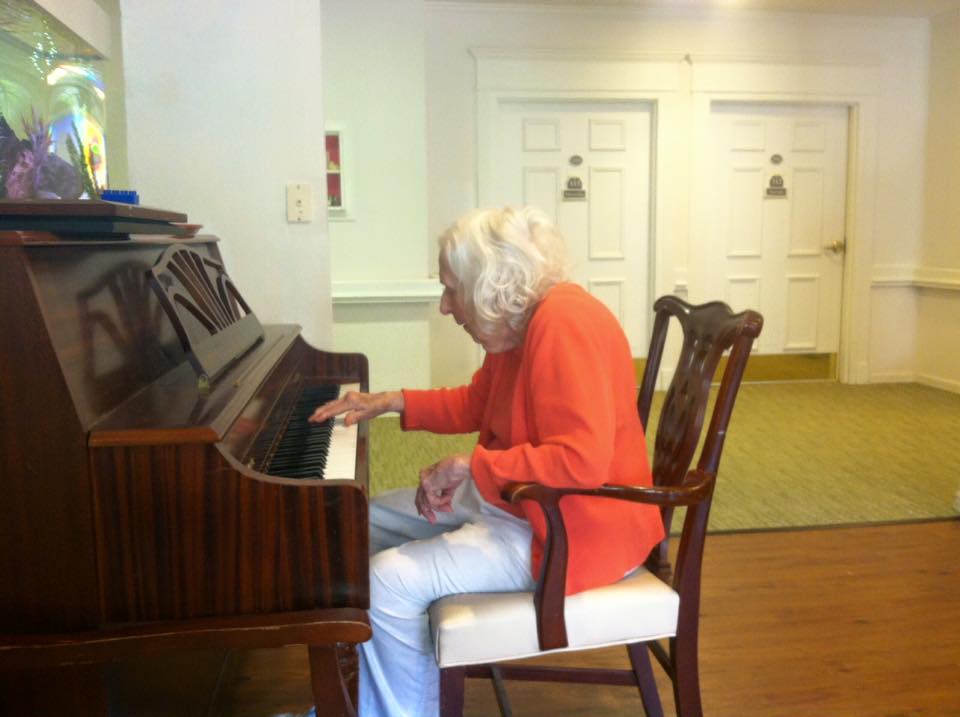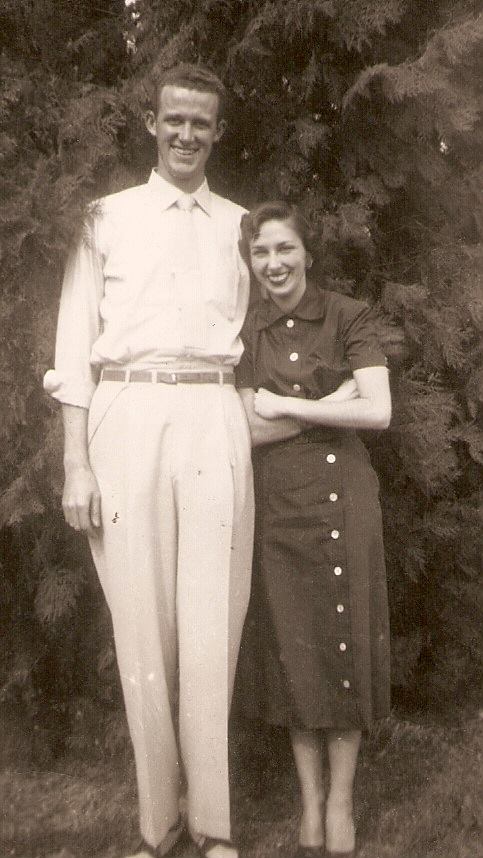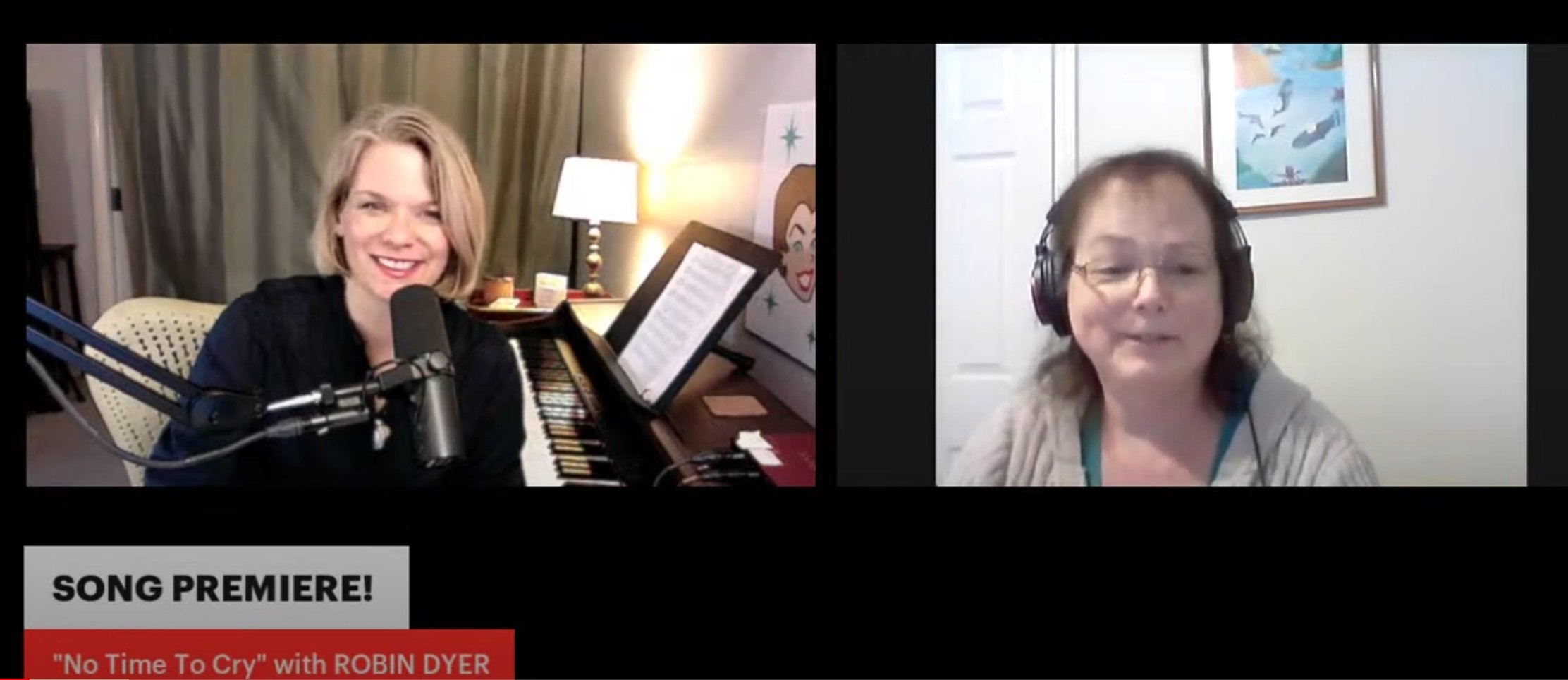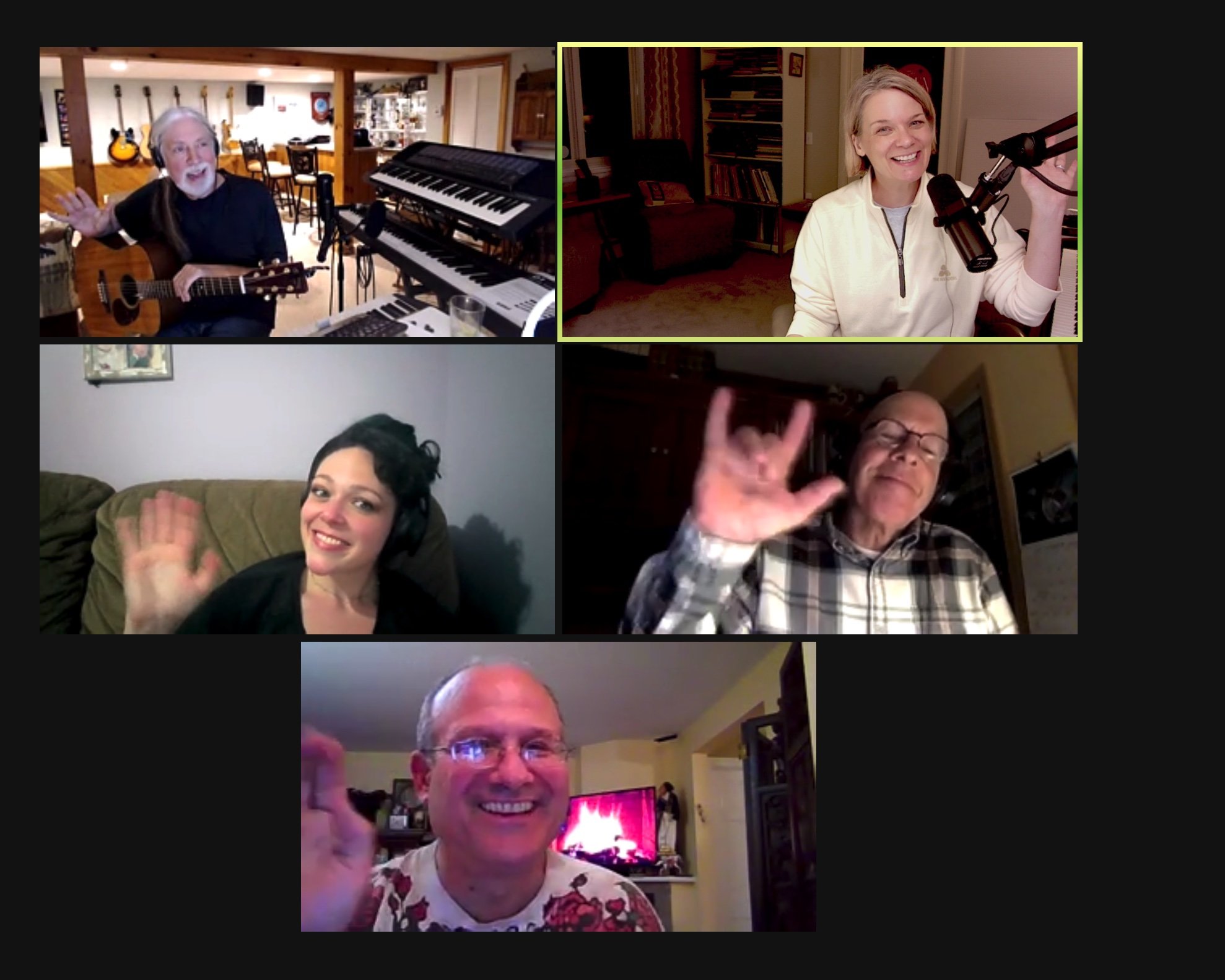I recently sang at the memorial service for Laura Lee Hickfang, the wife of my late voice teacher Prof. Paul Hickfang. Laura Lee died in April after a short illness.

Her obituary and her eulogizers described her as a true Southern Belle. She was all that and more, a tiny little Texan with prodigious musical talent, perfect pitch (a gift we shared and joked about), occasional dark moods, occasional wicked sarcasm, and a heart full of loyalty and love. Even though her husband was a fellow Texan, she always sounded far more Texan to me. She called her husband Paaaaahooul.
(I was also blessed to have an Arkansan as my piano teacher. I think I will always associate great musicians and teachers with Southern accents.)
When I arrived for a lesson at the baby grand in their living room, Laura Lee was almost always in the downstairs den of their split level home, watching a soap or whatever was on WCMH at four o'clock on a weekday. The two of them shared custody of the piano and taught their private lessons at different times. Laura Lee had the much larger private studio, and in retrospect I was probably making noise in her living room on her rare day off. She didn't disturb our lessons and we didn’t disturb her shows.
Prof. Hickfang was a survival-level pianist. He met Laura Lee when they were grad students at University of Texas at Austin. She was his piano teacher -- for a little while. He broke up with his serious girlfriend and started courting Laura Lee. Terrible pedagogy, but smart move. If you can't play piano, get a fantastic pianist to marry you.
So, at voice lessons, he would play the opening few notes of whatever song I was working on, and maybe a quick arpeggiated chord. Then he would grab a pencil and start conducting the beat, expecting me to just sing a cappella. For a girl with perfect pitch, this was no problem. It was a good system for us.
Occasionally, though, he wanted me to practice with accompaniment. And so he would stretch his 6-foot-7-inch frame from the piano bench, and pad (shoeless but sock-clad) over to the entrance to the finished basement, and supplicate his wife.
"Laura Lee? Could you come play this aria for Eden?"
(Long pause. The sound of shuffling.)
"Ahool rahgt, ah'll be there in a mihhnute."
And up she would come, all five feet of her. She walked over to her beautiful dark brown Steinway (covered with an elegant brass piano lamp, a Mexican serape, a metronome, a bust of Beethoven, and growing mounds of piano books), and sat down. She adjusted her glasses, and began to play whatever was put in front of her, flawlessly. Prof. Hickfang would try to conduct her, too, and it was fascinating to watch them work together on music. They were a true team. She would play about once a year for me, at most. She never told me what she thought of my singing. I just knew it was a very special occasion when she would play for me.
Every other summer or so, Prof. Hickfang would tell me he couldn't schedule a lesson with me for a few weeks, because it was time to take Laura Lee to Texas. Her very best friends were a group of girls she had known since kindergarten. They would reunite about every other year to catch up, while the husbands played cards together. I wondered what it would be like to be that loyal a friend for so long, and what kind of spouse would follow his wife to a girls’ weekend every two summers. Most husbands would stay home.
When Prof. Hickfang died in 2009, I was one of three singers who sang at his funeral. I sang "I Know That My Redeemer Liveth" from Handel's Messiah. I got through all of it, all those pages, and then I was down to my last few bars: "For now is Christ risen from the dead, the first fruits of them that sleep." Sopranos know there is a lovely G-sharp on the word "risen," and it's usually held an extra beat or so, to make the point. I nailed the G-sharp, held it an extra beat, and then thought, "Oh, he would have loved that." And then I thought it again, "Oh, he would have loved that," and began to feel my lip tremble. I made it through the final phrase and began to weep immediately as I closed my music. I couldn't stand the reception and went home.
The next day there was a voice mail on my parents' machine. "Deeeear Eden, it's Laura Lee," she began. "Ah wanted to thank yeeeuw for singing soooh beayutifully yesterday. You were a little off pitch on a few notes, but overall, it was very good. Ah miss him very much, but ah know that Pahool is in Heaven now. Love to yeeu and your family." That was so her. A combination of love, sweetness, and a little pedagogical advice.
As a widow, she threw herself back into her piano teaching, the cornerstone of her life for over 50 years. We stayed in touch. We had lunch, I sent Christmas cards. She got a cute little dog, and her children Gary, Carrie Lee, and Chase began to spend more time in the house with her. Her eyesight got worse and she had to stop teaching. It was a terrible but necessary step.
Last June, with her health declining, she was moved to a nursing home. I visited her there. She was very unhappy that day and kept asking Chase to take her home, but she knew who I was and she was able to keep up with the conversation. I helped her grab her walker and we shuffled around the facility, and when I left her she was sitting happily with some residents, cuddling with her cute dog, and giving me a kiss goodbye.
I drove back to the home she had left. The house was being readied for sale. The Steinway sat in the corner of the empty living room, and the piano lamp was still sitting on top. The serape was folded. Chase told me to take whatever sheet music I wanted, voice and piano, from the stacks that still remained. I took as much as my car could carry. The lamp now illuminates my own baby grand piano in my own living room. I tried to bring them both with me.
Carrie Lee called me the morning her mother died, and asked me to sing at her memorial. Of course, I said. Then, I promptly contracted a terrible cold (or a slightly less terrible flu, not sure which). I went through boxes of Kleenex as I packed my suitcase. I was feverish. My ears were blocked. I took Dayquil and Nyquil. I ached all over. I chose two songs that I thought I could sing in any circumstance (cold, jet lagged, and/or grieving) and hoped for the best.
Laura Lee's memorial was held at the same church where her husband's was. The organist pointed out the place where they had sat together for services. I said hello to Rickie and Jim, the other former students who had come to sing. We rehearsed quickly with Rose Zuber, the excellent pianist who had played for all of us five years before, and I managed to keep my sniffles and coughing at bay. I decided to just focus on technique, in order to get through the service physically. I also rationalized that since I had cried a river at Prof. Hickfang's funeral, I'd probably manage to be dry-eyed for Laura Lee.
I got up and sang the Bach/Gounod version of Ave Maria. I've sung it at countless funerals. I kept my composure by refusing to look at anyone in the family row. A few minutes later I got up and sang "Pie Jesu" from the Faure Requiem.
[audio mp3="http://www.edencasteel.com/wp-content/uploads/2015/05/My-Song.mp3"][/audio]
I don't sing it at enough funerals. It's such a lovely piece. I could see the Latin text going by in my head, and the English translation. Dona eis requiem . . . grant them rest. Them. And I suddenly realized, I'm not singing for her, I'm singing for them. The two of them. The thought filled me with great happiness. I'm singing the two of them to Heaven. The reunion is complete. I finished the song, smiling. Wow!, I thought. I'm not crying! It's like I'm a professional or something! And then I sat down, and began to weep, and did not stop. Didn't even try.
There was one more song. Rose, a friend to the Hickfangs for decades, played Debussy's Clair De Lune. It was a perfect tribute: Brilliant, heartfelt, demanding, emotional, and filled with beauty. And we all cried, knowing that while the music was coming from Rose's capable hands, it was Laura Lee we were hearing, for the last time.
[audio m4a="http://www.edencasteel.com/wp-content/uploads/2015/05/11-Track-11.m4a"][/audio]
When the service was over, people came over to me and said I sounded wonderful, and they meant it. I was flattered.
In Heaven, I dearly hope the reviews were mixed.
